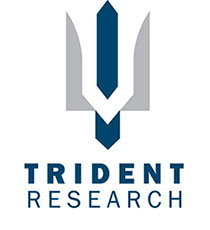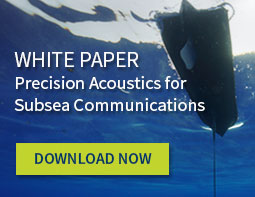Integrator Story: Trident Research
Shane Goodenough — May 2, 2018

Trident Research is a solutions company specializing in military test instrumentation and technologies, including sea and land-based weapon scoring systems. Founded in 2001 and headquartered in Austin, Texas, Trident is known for their creative but disciplined systems engineering and development, with an emphasis on results in the field.
For open water test range scoring, Trident recognized early on the need to transition away from ships and move to unmanned systems. Unmanned systems would enable them to retire legacy systems that are costly to maintain and allow the Navy to move away from instrumentation that is mounted to the seafloor, providing them with greater flexibility for where they perform tests.
Trident’s first iteration used a distributed sensor system of buoys, then evolved to a short duration unmanned surface vehicle (USV). However, this solution came with its own challenge: the endurance of their homegrown USV was limited to 60 hours. Evolving customer requirements were driving the need for a platform that could operate for longer durations.
Improving Open Water Range Solutions
Range time is expensive. Keeping ranges clear requires multi-agency coordination and multiple assets. Extra days cost time and money, so endurance and reliability of systems and instruments involved in testing is essential.
The Wave Glider, known for its long-duration and sensor hosting capabilities, offered Trident the ideal platform to meet the standard mission parameters without compromise.
“We’ve been pursuing this concept for a number of years and saw the advent of unmanned systems being the right solution if you can solve the payload problem and the endurance problem,” said Miguel “Mike” Cardoza, Trident Research Founder & President. “Advanced sensor technologies are solving the payload problem and the Wave Glider solves the endurance problem.”
The next step was to solve the payload integration challenge.
Building on a Platform
Trident recognized the value of a sensor hosting platform like the Wave Glider and intended to build capabilities that would offer unique value to its end-customers. They leveraged Liquid Robotics developer and operator training programs to accelerate their integration efforts. A large part of this work involves software development to leverage the processing and communications capabilities of the vehicles. As active participants in the Liquid Robotics beta program, they have early access to new technologies and capabilities and are providing feedback directly to Liquid Robotics engineering to influence future products and capabilities.
The Trident Research and Liquid Robotics teams have also shared expertise and ideas in other areas, brainstorming how to improve deployment and recovery based on years of mutual experience putting different types of data collection and communication systems in the water.
Both teams have found common ground in their customer-centric cultures.
“We’re a small business that takes a lot of pride in our customers and their missions. We like being the solution company for them and will do whatever we can to solve their problem and serve their mission,” said Andy Adamez, Solutions Development Manager. “The relationship with Liquid Robotics has felt very familiar from Day 1, looking across the table and finding a similar culture, struggles, and experiences. It is refreshing to have this level of a collaborative relationship with a partner.”
Partner and Integrator Services Used by Trident
- Developer Training
- Operator Training
- Beta Program Participant
